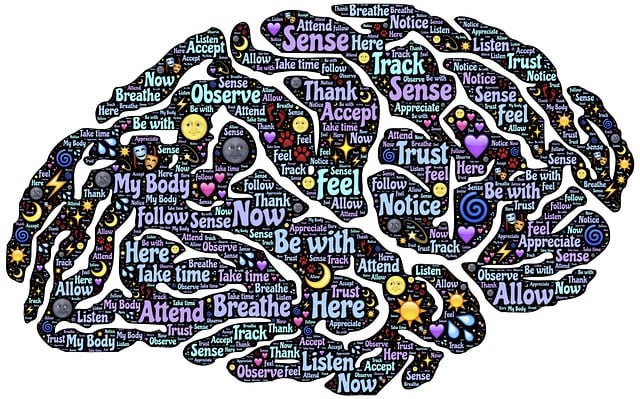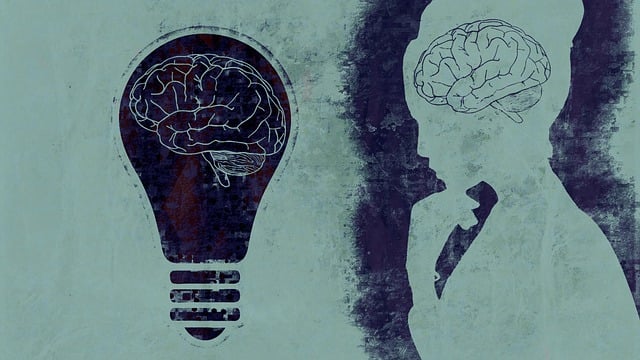Mental health policy in Louisville holds immense potential to transform community well-being. By emphasizing prevention, resilience building, and empathy-driven strategies, the city can improve access to therapy like self-esteem counseling and empower residents with emotional regulation tools. Louisville Self-Esteem Therapy offers a unique approach, fostering self-belief and community resilience through holistic practices. Despite promising initiatives, gaps exist in specialized care and affordable treatments; addressing these is crucial for improving mental health services. Advocacy and policy changes, driven by organizations like Louisville Self-Esteem Therapy, are key to expanding resources for at-risk populations and promoting Mental Health Awareness. Robust evaluation frameworks, considering both qualitative and quantitative data, ensure successful initiatives that create a more inclusive and supportive environment for mental wellness.
Mental health policy analysis and advocacy play a pivotal role in shaping communities, especially in Louisville. This article delves into key aspects of mental healthcare transformation. We explore ‘Understanding Mental Health Policy’ as a catalyst for change in Louisville, highlighting the potential impact of evidence-based practices like self-esteem therapy. Through ‘Analyzing Existing Resources’, we identify gaps and opportunities for improvement. ‘Advocacy Strategies’ empower voices advocating for better mental healthcare, while ‘Measuring Success’ evaluates policy interventions’ effectiveness. Focus on Louisville Self-Esteem Therapy underscores the community’s commitment to holistic well-being.
- Understanding Mental Health Policy: A Foundation for Change in Louisville
- The Impact of Self-Esteem Therapy: Unlocking Potential in the Community
- Analyzing Existing Resources: Gaps and Opportunities for Improvement
- Advocacy Strategies: Empowering Voices for Better Mental Healthcare
- Measuring Success: Evaluating the Effectiveness of Policy Interventions
Understanding Mental Health Policy: A Foundation for Change in Louisville

Mental health policy is a critical aspect of fostering well-being within communities, and Louisville, like many cities, has unique challenges and opportunities when it comes to addressing mental health concerns. By implementing effective policies, Louisville can drive significant positive changes in its residents’ lives, especially those seeking Louisville self-esteem therapy or support for other mental health issues. The first step lies in recognizing the multifaceted nature of mental well-being; it involves not just treating symptoms but also focusing on prevention and building resilience.
Louisville’s policy advocates should emphasize empathy-building strategies and emotional regulation techniques as key components of a comprehensive approach. These strategies can empower individuals to manage stress, improve their overall emotional well-being, and develop the resilience needed to navigate life’s challenges. By investing in education, awareness campaigns, and access to therapy, Louisville can create an environment that prioritizes mental health, ensuring its citizens have the tools and resources necessary for a thriving and sustainable future.
The Impact of Self-Esteem Therapy: Unlocking Potential in the Community

Louisville Self-Esteem Therapy has proven to be a powerful tool in transforming lives and fostering well-being within the community. This therapeutic approach goes beyond traditional talk therapy, focusing on empowering individuals with the belief in their own worth and abilities. By targeting underlying self-esteem issues, Louisville Self-Esteem Therapy helps people from all walks of life to break free from limiting beliefs and negative thought patterns.
The impact of this therapy extends far beyond individual growth. When implemented widely, it can lead to improved community resilience, enhanced conflict resolution techniques, and increased empathy building strategies among its members. Compassion cultivation practices, encouraged by Louisville Self-Esteem Therapy, create a culture of understanding and support, reducing the strain on mental health resources. This holistic approach not only addresses immediate mental health concerns but also works towards building stronger, more compassionate communities where individuals feel valued and equipped to navigate life’s challenges.
Analyzing Existing Resources: Gaps and Opportunities for Improvement

Analyzing the existing resources for mental health services in Louisville reveals both promising initiatives and significant gaps. Local organizations offer a range of programs, including therapy options tailored to specific demographics, such as Louisville Self-Esteem Therapy, catering to individuals seeking support for their self-worth and emotional well-being. However, there are still unmet needs, particularly in areas like access to specialized care, affordable treatment options, and comprehensive services addressing a wide spectrum of mental health concerns.
The current landscape suggests opportunities for improvement, focusing on enhancing resources for at-risk populations, integrating innovative practices like conflict resolution techniques into existing programs, and fostering ongoing Mental Health Awareness campaigns. By addressing these gaps, Louisville can strive towards a more inclusive and effective mental health support system that benefits all residents.
Advocacy Strategies: Empowering Voices for Better Mental Healthcare

Advocacy plays a pivotal role in shaping mental healthcare policies and ensuring that individuals receive the support they need. For Louisville Self-Esteem Therapy and similar organizations, it’s about amplifying voices often left unheard—those of people living with mental health challenges and advocates who champion for their rights. One powerful strategy is to Mental Health Education Programs Design engaging campaigns that raise awareness, dispel stigma, and promote early intervention. By fostering Self-Awareness Exercises and Stress Management Workshops Organization, communities can empower individuals to take charge of their well-being.
These advocacy efforts translate into policy changes, leading to improved access to quality mental healthcare services, including therapy options like self-esteem building programs. Through collective action, advocates drive the development of inclusive policies that address the unique needs of diverse populations. Such initiatives not only enhance the availability of resources but also ensure that these services are tailored to be culturally sensitive and effective.
Measuring Success: Evaluating the Effectiveness of Policy Interventions

Measuring success is a critical aspect of mental health policy analysis and advocacy. To evaluate the effectiveness of policy interventions, it’s essential to implement robust evaluation frameworks that go beyond simple numbers. The impact of policies aimed at improving mental health, such as Louisville Self-Esteem Therapy, should be assessed holistically, considering factors like individual resilience building, changes in community wellness, and the long-term sustainability of positive outcomes.
This involves looking at both qualitative and quantitative data to understand how programs like Mindfulness Meditation and Mental Wellness Coaching Programs Development contribute to mental health improvements. By tracking participant progress through regular assessments and collecting feedback, we can gain insights into the mechanisms behind successful interventions. This allows for evidence-based advocacy, ensuring that policies are tailored to meet the unique needs of communities and individuals, fostering a more inclusive and supportive environment for mental wellness.
Louisville’s mental health landscape is ripe with opportunities for improvement, as evidenced by our policy analysis. By understanding the foundation of mental health issues within the community and advocating for evidence-based practices like self-esteem therapy, we can unlock significant potential. Analyzing existing resources has revealed critical gaps that must be addressed through collaborative efforts and innovative strategies. The success of policy interventions lies in their ability to empower individuals and communities, ensuring better access to quality mental healthcare. Moving forward, Louisville can become a beacon for positive mental health transformation, thanks to the collective advocacy and strategic initiatives implemented throughout this process, with a particular focus on enhancing Louisville Self-Esteem Therapy services.














